
Note for Steem readers: Recently, I sent the following letter after becoming aware of the City of Berkeley's plans to launch its own cryptocurrency and tie it with a bond offering. In my opinion, such a plan simply creates more debt. I explain in the letter how a Steem Smart Media Token (SMT) could be a better choice.
Berkeley is not unique in considering a cryptocurrency, since governments like Estonia, Venezuela, Seoul, and Lafayette, Louisiana have all considered the idea in some form (and there seem to be more such news stories almost every day). While many Steem users are suspicious about governments in general, I believe that citizens and direct democracy would be clear winners if municipal governments let their communities take a more active role and take more charge of their own funding priorities by using a cryptocurrency. This is a great use case for SMTs and I hope to explore more such use cases in the near future. -DP
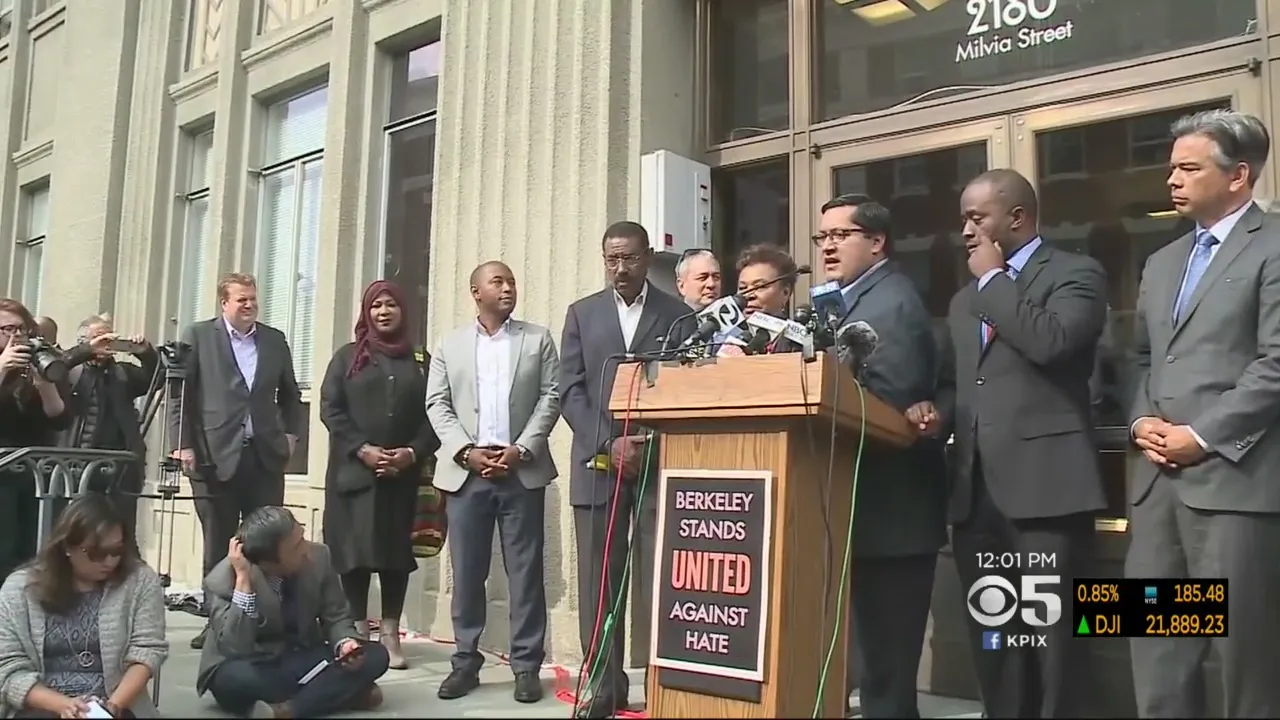
The mayor speaks at a unity rally in Berkeley. Source: CBS/KPIX.
The Open Letter
To: The Honorable Jesse Arreguin and Members of the Berkeley City Council
Dear Mayor Arreguin and Members of the City Council,
Thank you for allowing me to address the City of Berkeley’s plans to utilize a cryptocurrency. My name is Tom and I use the screen handle @donkeypong on the Steem blockchain. Though you may not have heard of Steem or its flagship site Steemit.com, the Steem blockchain currently processes about half of all cryptocurrency transactions, many more than Bitcoin or Ethereum.
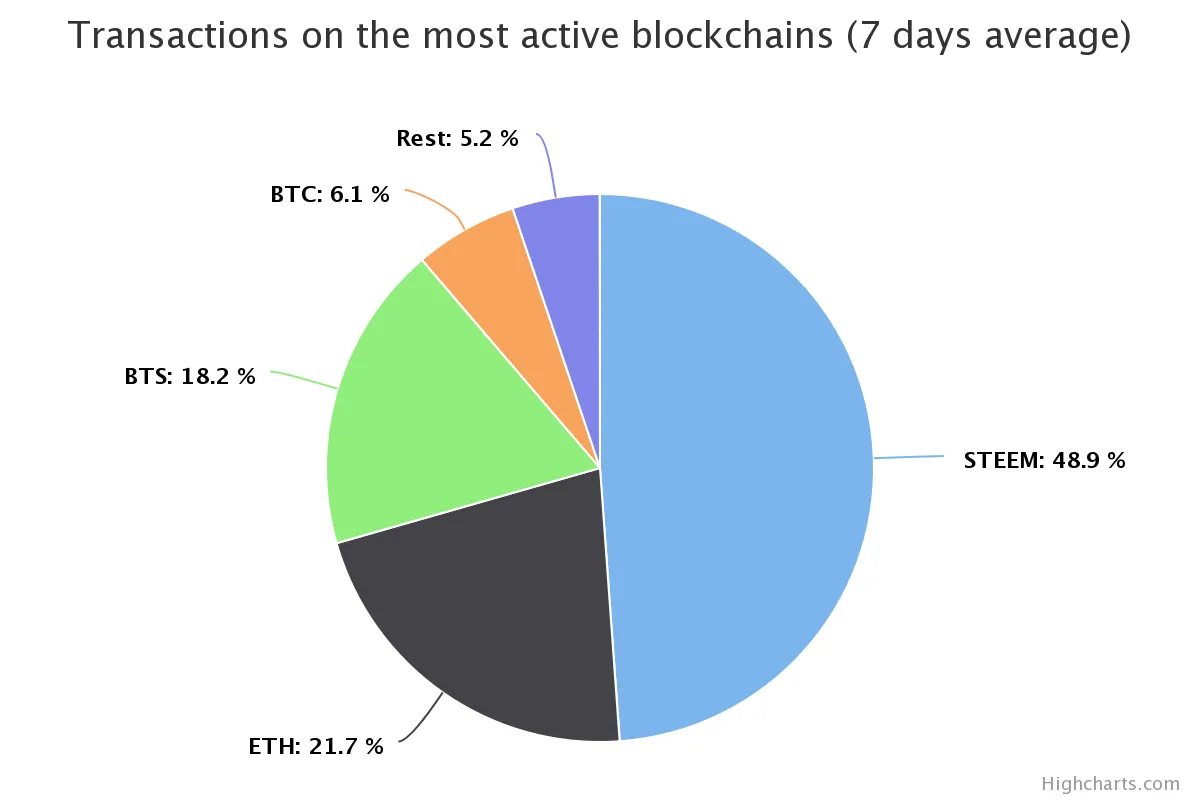
Source: Blocktivity.info.
First, let me summarize what I understand of Berkeley’s cryptocurrency plans and explain why I think the cryptocurrency bond idea is deeply flawed. Second, I’d like to explain how using a Smart Media Token (SMT) from Steem would be a wiser choice, enabling the city to save a great deal of money and hopefully achieve a more vibrant, participatory community of Berkeley residents. Finally, I will invite you to contact the developers at Steemit, who stand ready to answer any questions and help get you started in launching a Berkeley SMT in the coming months.

Berkeley’s Reported Interest in Cryptocurrency
Early this year, several media outlets reported that the City of Berkeley was considering a cryptocurrency ICO in place of a bond offering. As I understand this situation, the city needs money to support affordable housing plans. The cost of living in the Bay Area is high and funding from the federal government for such programs has been reduced.
While cities generally use municipal bonds to raise money for projects, bond offerings are extremely expensive and come with hassle and fees. They are not practical for smaller projects. So the city hopes to tokenize the bond and sell off small pieces of it to the community or to investors.
As Coindesk.com reported, “The project's backers hope that by selling the micro-bond tokens, they will eventually be able to fund affordable housing projects, but they plan to start with smaller ventures, such as purchasing an ambulance for a fire station.”
Cryptocurrency ICO: The Wrong Tool for this Job
An ICO is a not the right idea here, for several reasons. First, there are potential regulatory hurdles. In the United States, the Securities and Exchange Commission (SEC) has made noises about ICOs needing more regulation, which has cooled the market for them somewhat. An offering for investors runs the risk of the token being labeled as a security.
As a former Securities and Exchange Commission (SEC) lawyer remarked, quoted in the San Francisco Chronicle regarding Berkeley’s plans: “There are tremendous security ramifications, and they should expect an unbelievable amount of regulatory scrutiny. Whatever they do will be under the microscope of the SEC.”

Other governments have discussed issuing asset-backed cryptocurrencies. Estonia is considering a crypto that would have several different potential uses, one of them being pegged to the Euro. Venezuela used a quasi-cryptocurrency backed by oil reserves. Many other governments from Seoul, Korea to Lafayette, Louisiana are looking at cryptos as well.
Berkeley apparently would like to back its crypto with the bond somehow, or merely chop up the bond and tokenize each segment of it. But in the end, those are just smart contracts with some sort of collateral attached, collateral which could raise the eyebrows of regulators in the areas of securities, commodities, and financial instruments. Meanwhile, the collateral becomes a constraint when the truth is that Berkeley doesn’t need collateral to create a cryptocurrency.

Sorry, buddy. You're not what they need just now.
Why not eliminate the bond? The bond is a sanitized way to explain this instrument to the public, but it is constraining when better possibilities exist.
The remaining issue with Berkeley selling its cryptocurrency is that it’s simply creating more debt. That may mean little when municipal governments are accustomed to continuous cycles of borrowing more money. But those bills come due at some point, with interest. For a city that’s already in debt with unfunded pensions and other obligations, the ICO would be another tool to borrow money.
Berkeley has never shied away from being a trendsetter. What the city needs is a more revolutionary approach. What if a municipal government like Berkeley could create a cryptocurrency that DOES NOT incur a new debt because it is creating new value instead?
Yes, there is a better solution. It requires you to think bigger. In two steps, I will show you how a Steem Smart Media Token (SMT) can solve Berkeley’s problems.
Smart Media Tokens site: https://smt.steem.io/
Step 1: Get the Community Online
The City of Berkeley needs an online presence. I’m not talking about a website, which it has. I’m talking about bringing its community together through an online portal. In particular, I’m thinking of something like the site Nextdoor, where residents of a particular city or neighborhood and come together, interact, and read and write posts (“Free concert in the park this weekend”, “Does anyone know a good babysitter?”, “Warning: phone scam for seniors”). Facebook groups can accomplish something similar. Creating a portal to serve a similar function is not rocket science.
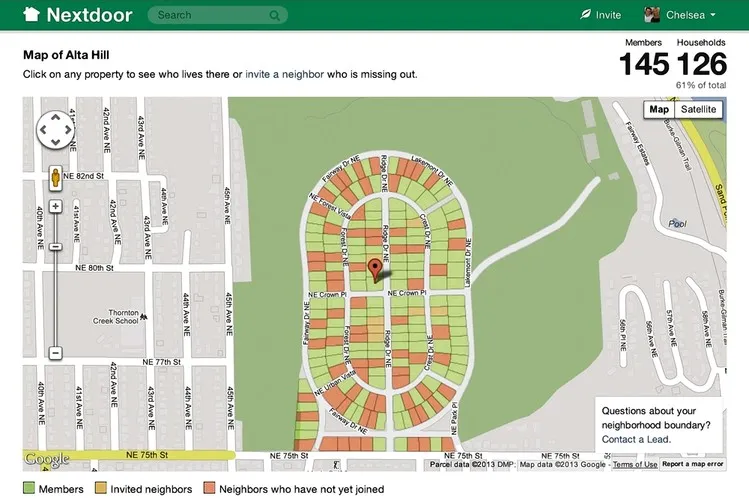
A screenshot from Nextdoor.com, showing that people in certain neighborhoods can connect with others nearby in an online community, similar to a local Facebook group.
An alternative would be to build the Berkeley community on Steemit.com or another Steem powered site. It will take a few months for the full community features to become available, but the city can start building it beforehand. And using Steemit.com would save you the trouble of operating your own site; you simply would manage a community of Berkeley residents in an online Steemit-based community.
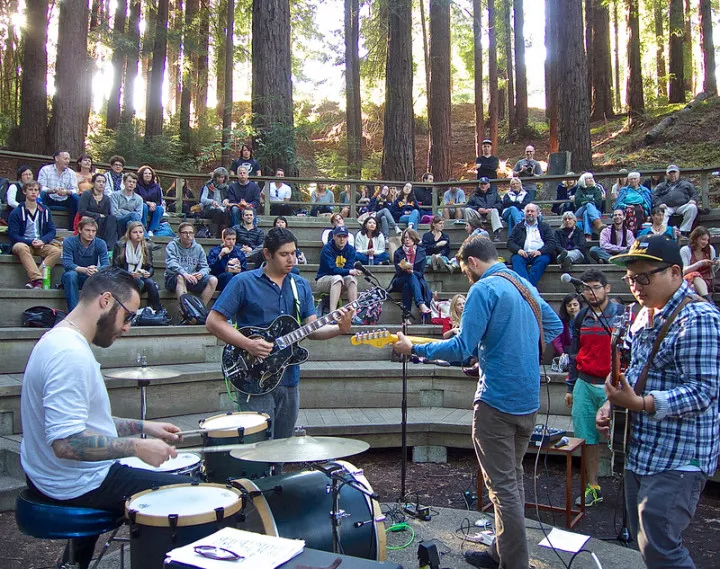
A concert in Berkeley. Source: Berkeleyside.com
Step 2: Launch an SMT
Instead of creating a new own cryptocurrency, launch a Smart Media Token (SMT) on Steem. The barriers of entry are much lower with an SMT than for one’s own cryptocurrency. Berkeley could save itself the trouble of running and maintaining its own blockchain; let Steem handle that and Berkeley can customize its SMT’s parameters.
Airdrop it to the city’s residents by giving a fixed quantity to each household that registers with a verified identity on the city’s community portal. Enable the SMT on the site and put an airdropped deposit in each resident’s account. Because there is no ICO and no investors, the securities concerns should nearly disappear (though I am not making any legal judgments here and encourage you to consult legal counsel for verification).
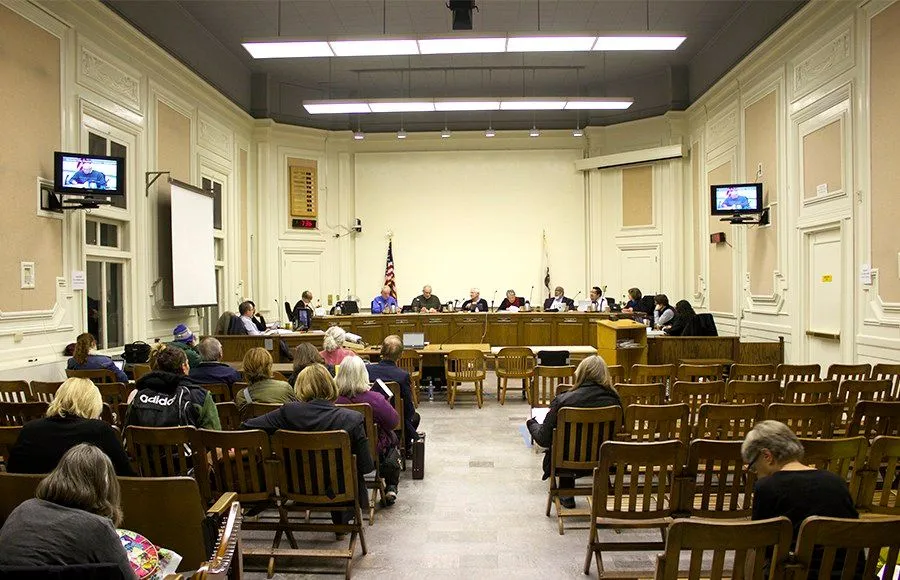
Berkeley City Council. Source: Daily Californian.
The Berkeley City Council can decide on its priorities with feedback from the community. These could include the Affordable Housing idea that some city leaders want to fund. If the city needs a new fire truck or a new baseball field at one of its parks, all of these priorities can be put before the community directly. Post these priorities online and give residents an opportunity to vote on which of them are most important (prioritizing the list).
As they vote, they will be ranking priorities AND allocating funds to each of them.

Berkeley High School students rallying. Source: Bay Area News Group.
A Vibrant Community and No New Debt Obligations
Over time, without incurring any further debt, the affordable housing (or any other priorities the city residents want to fund) will get funded via peoples’ votes allocating value to them. At the same time, residents will be able to vote for one another’s posts as well, providing incentives for people to consider what is best for their city and share information with their neighbors. In the end, maybe more residents will be able to afford housing not only because the city has micro-funded it, but also because they have earned more money through their own postings in the online community.
Encourage local businesses to accept this SMT for products and services, perhaps giving them a tax break or some incentive when they do so. In the history of the United States, local currencies have played a big role in many regions. The more people use and accept this SMT as a currency, the greater will be its stable and lasting value.
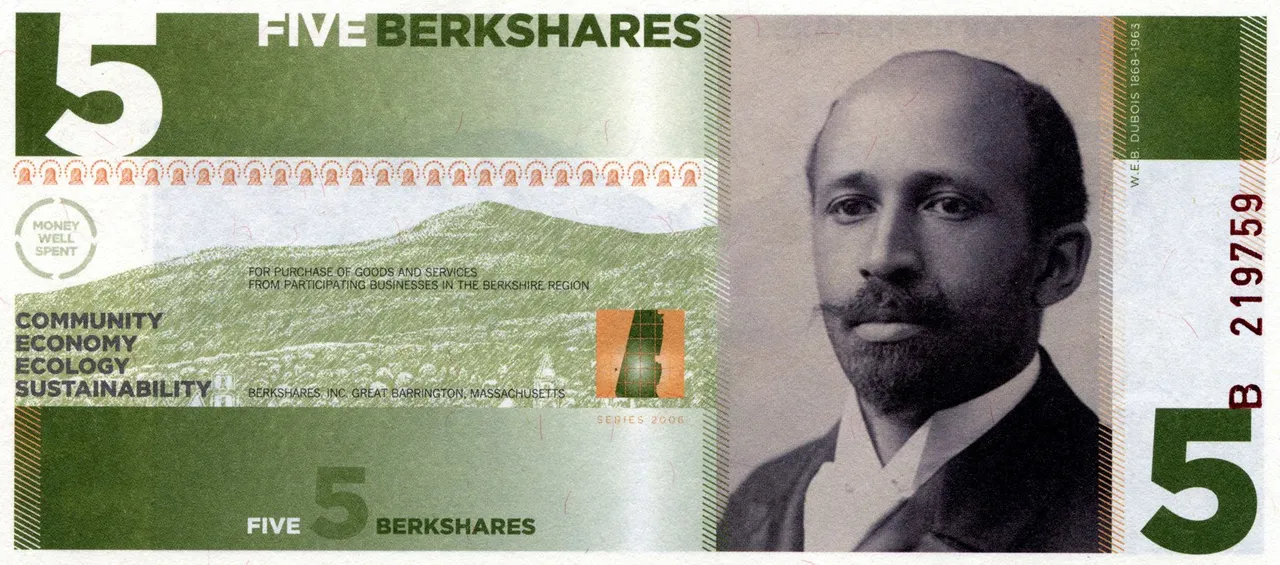
Berkshares from Massachussetts, one of the most widely used local currencies in the United States.

Berkeley Farmers Market. Creative Commons via Flickr.com by Jay Cross.
Berkeley is a socially conscious city; its residents and businesses would no doubt embrace a local currency that operated by and for the people of the community. Such adoption would provide additional scale for the city’s SMT, which would be solving multiple problems at once. This token is designed to support and enrich the city’s residents, not borrow more money that their children will have to pay back in the future.
I urge the City of Berkeley to consider creating an SMT. To see a practical use case for Steem, please visit the Steemit.com site. For questions and to learn more about SMTs, please contact david@steemit.com. Thank you and best wishes.
Sincerely, Tom @donkeypong
Sources:
https://www.coindesk.com/us-city-plans-to-sell-tokenized-bonds-in-initial-community-offering/
https://www.forbes.com/sites/rachelwolfson/2018/02/27/city-of-berkeley-plans-to-launch-an-ico-and-cryptocurrency-to-fund-affordable-housing/#6f413a887838
https://www.technologyreview.com/s/610442/berkeley-ca-is-considering-an-ico-unlike-any-other/
http://www.foxandhoundsdaily.com/2018/02/berkeley-blockchain-pensions/
https://qz.com/1160396/estonias-planning-an-ico-for-estcoins-despite-mario-draghis-warning/
https://theconversation.com/dont-be-fooled-venezuelas-petro-is-not-really-a-cryptocurrency-92310
https://www.sfchronicle.com/bayarea/article/Berkeley-s-plan-to-make-its-own-cryptocurrency-12705057.php
Link to the Steem SMT info site: https://smt.steem.io

